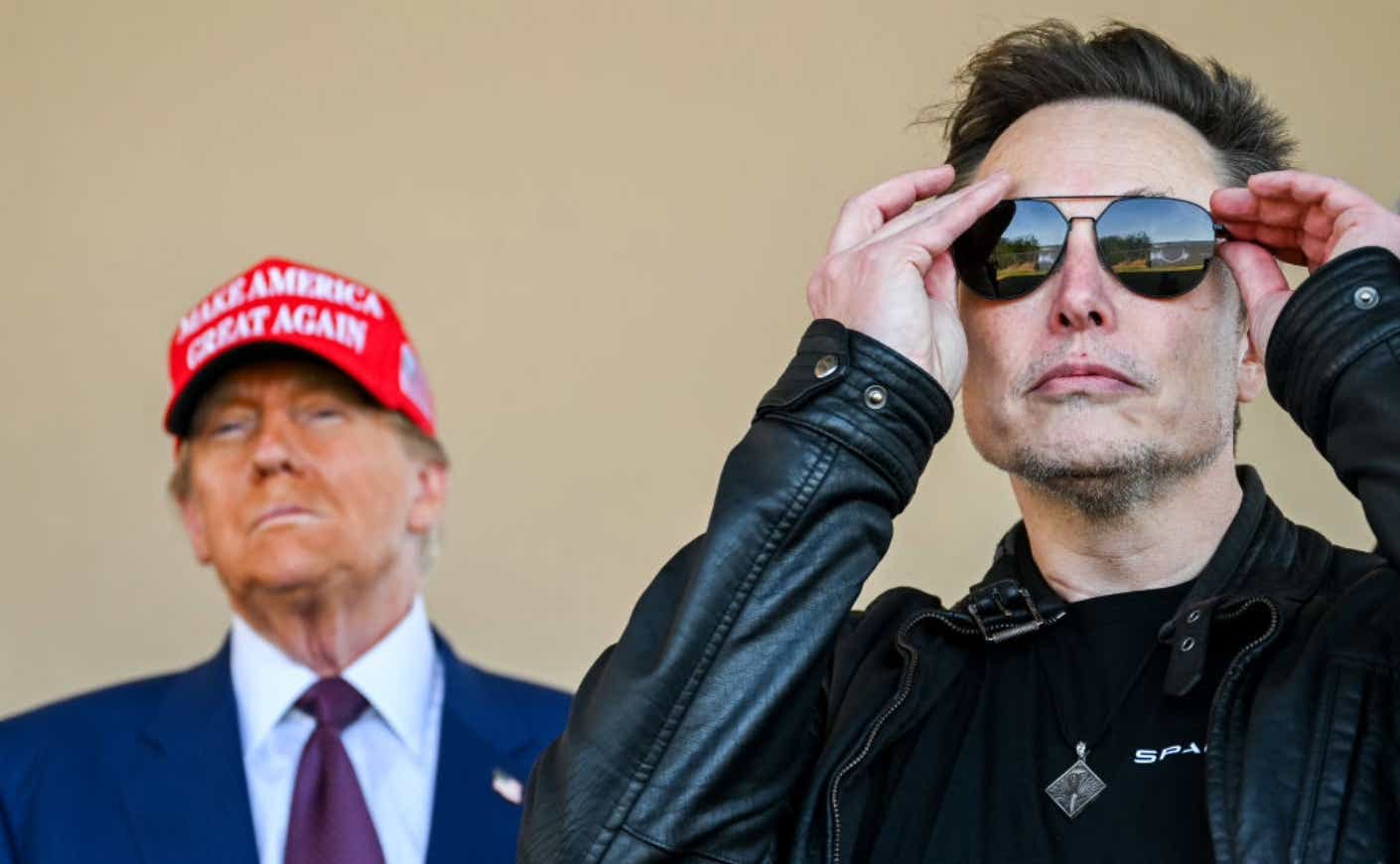President Trump’s billionaire adviser, Elon Musk, appears to be amassing more control over government spending, a development that could affect vital funds to millions of Americans.
On Friday, The New York Times reported that Treasury Secretary Scott Bessent granted the Department of Government Efficiency (DOGE)—a newly created commission led by Musk—full access to the Treasury Department’s $6 trillion annual payment system, which handles the disbursement of Social Security and Medicare benefits.
The decision followed a tense standoff within the Treasury Department, where senior officials initially resisted integrating Musk’s team into the system. David Lebryk, a key Treasury official who opposed the move, was placed on leave and abruptly retired the same day after more than 30 years of service.
Since then, Musk announced he was halting payments to federal contractors, which he claims had Trump's approval. "The corruption and waste are being rooted out in real time,” he posted on X Sunday, adding that officials under DOGE are “rapidly shutting down” U.S. Department of Health and Human Services payments to Lutheran Family Services, a faith-based charity that provides social services to refugees.
But it’s unclear just what all Musk intends to do with all of this unprecedented control. Historically, only a handful of career officials have managed the system, raising questions about how this shift could reshape government spending oversight. Here’s what we know so far.
Wait, what is Musk’s DOGE commission?
As part of his wave of executive orders in November, Trump renamed the U.S. Digital Service — initially established by President Barack Obama in 2014 — to the U.S. DOGE Service and moved it under the Executive Office of the President. The rebranding signaled a shift in priorities, with a stronger focus on cost-cutting rather than modernizing government technology. “It will become, potentially, 'The Manhattan Project' of our time,” Trump wrote on Truth Social, referring to a top-secret World War II program to develop nuclear weapons.
Initially, the task force was co-led by Musk and former Republican presidential candidate Vivek Ramaswamy, who pledged to slash billions from the federal budget by eliminating jobs, cutting programs, and rolling back regulations. But with Ramaswamy stepping down to explore a run for Ohio governor, Musk now holds sole control over the initiative — a shift that has drawn scrutiny.
Musk has increasingly worked to consolidate power within the federal government, installing close allies in key agencies such as the Office of Personnel Management and the General Services Administration. He has also sought to extend his influence over other entities, including the U.S. Agency for International Development (USAID), the government’s primary humanitarian aid agency. In a post on X, he called USAID “a criminal organization” that should “die.”
On Monday, USAID staff were told to stay out of the agency's headquarters. This comes a day after Director for Security John Vorhees and Deputy Director for Security Brian McGill were reportedly placed on administrative leave after refusing DOGE officials access to the agency’s systems containing classified information and personnel files. Although such access is normally restricted to individuals with security clearances, DOGE eventually gained entry. Following the incident, DOGE spokesperson Katie Miller reposted an AP article about the development on X, stating, "No classified material was accessed without proper security clearances."
Musk's expanding influence has raised concerns about the extent of his control and the transparency of his agenda. “There are many disturbing aspects of this,” political scientist Seth Masket wrote in his Substack, tusk. “But perhaps the most fundamental is that Elon Musk is not a federal employee, nor has he been appointed by the President nor approved by the Senate to have any leadership role in government."
In recent weeks, DOGE has begun scrutinizing federal agencies for potential spending cuts, with Musk focusing on the Treasury Department — particularly its payment processes. Following Lebryk’s departure, Musk, without evidence, claimed that DOGE had uncovered directives instructing Treasury payment approval officers to authorize all transactions, including those to known fraudulent or terrorist groups, and that some had “never denied a payment in their entire career.”
Why does Musk’s DOGE want access to Treasury payments?
It remains unclear what Musk and his DOGE allies plan to do with the federal payment system — or the sensitive data it holds. Democratic Senator Ron Wyden has raised concerns that this could encompass “Social Security and Medicare benefits, grants, payments to government contractors… all of it.”
What's more, Lindsay Owens, executive director of the progressive economic think tank Groundwork Collaborative, warned in an op-ed for MSNBC that gaining access to the Treasury’s payment system could pave the way for freezing government funding — an action the administration attempted earlier this week before reversing course after court intervention.
“Musk could halt payments to programs like Medicaid, Meals on Wheels, Head Start and more, maneuvering around the courts,” Owens wrote. “Musk has already directed his engineers to find ways to turn off the flow of money to programs he and President Donald Trump oppose. With the keys to the Treasury’s payment system, he can unilaterally cut off these funds right at the source."
Owens also speculated that the billionaire could gain access to the "Do Not Pay" system, which lists individuals and contractors blacklisted by the government, potentially giving him control over who the government does business with. “He could easily place his rivals on the Do Not Pay list or turn the spigot back on for friends who have been blacklisted,” she said.
Meanwhile, Democrats have already raised similar alarms about granting Musk’s allies access to the Treasury system, though their warnings went unheeded. “To put it bluntly, these payment systems simply cannot fail, and any politically motivated meddling in them risks severe damage to our country and the economy,” Wyden said in a letter to Bessent before he granted Musk’s team access to the tool. “I can think of no good reason why political operators who have demonstrated a blatant disregard for the law would need access to these sensitive, mission-critical systems.”









